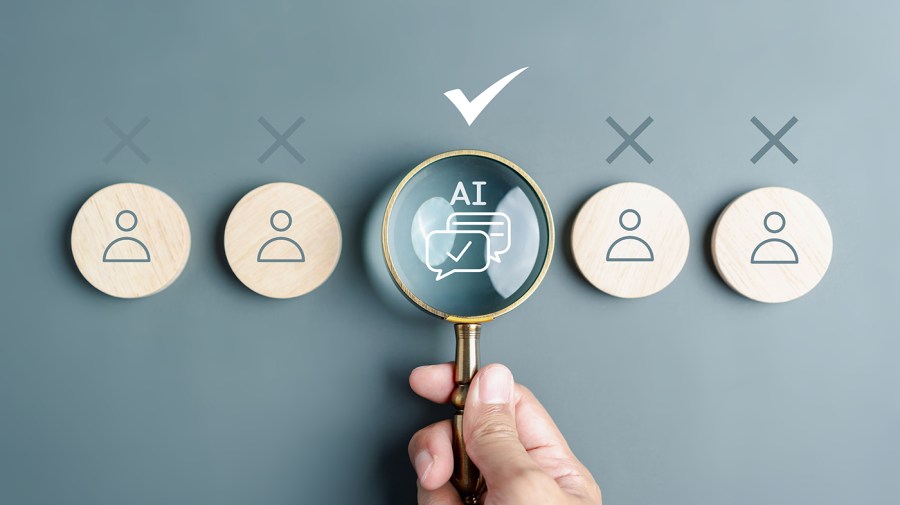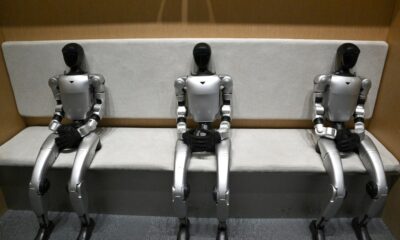Technology
AI Revolutionizes Job Market: Experts Weigh Future Impacts

Concerns surrounding the impact of artificial intelligence (AI) on the job market have intensified, with various business leaders warning of potential upheaval. Predictions include widespread worker displacement and significant unemployment rates, though the overall picture remains uncertain. Analysts are now examining how AI technologies might reshape employment across different sectors.
Business Leaders Raise Alarm
In a series of statements issued throughout August 2023, prominent figures in the business community have expressed alarm over the rapid integration of AI into the workplace. These leaders argue that advancements in automation and machine learning could lead to significant job losses in various industries, particularly in roles that involve routine tasks. The potential for AI to outperform humans in efficiency and cost-effectiveness raises concerns about the future of millions of jobs.
Companies such as Google and IBM are already implementing AI solutions that streamline operations and reduce labor costs. According to a report from the World Economic Forum, around 85 million jobs could be displaced by AI by 2025, while 97 million new roles may emerge in the evolving job landscape. This shift highlights the dual-edged nature of AI: while it may eliminate certain positions, it also promises to create new opportunities.
Uncertain Future for Workers
Despite the potential for AI to enhance productivity, many experts caution against a rush to conclusions regarding job displacement. The full impact of AI on the workforce is still unclear, as the technology continues to evolve. Some researchers argue that AI could augment human capabilities rather than replace them. For instance, industries such as healthcare and education may benefit from AI tools that assist professionals in their work, rather than taking over their responsibilities completely.
Furthermore, a survey conducted by Pew Research Center indicates that public perception of AI’s impact on employment is mixed. Approximately 48% of respondents believe AI will create more jobs than it eliminates, while 46% express concern about the potential for job loss. This divide underscores the complexity of AI’s influence on the job market and the need for ongoing dialogue among stakeholders.
The challenges presented by AI also raise critical questions about the skills that future workers will need. As businesses adapt to new technologies, there is a growing emphasis on reskilling and upskilling the workforce. Programs aimed at equipping employees with digital skills are becoming essential for job security, ensuring that workers remain competitive in an increasingly automated world.
In response to these challenges, some governments are exploring policies to support affected workers. Initiatives may include financial assistance for retraining programs and partnerships with educational institutions to facilitate access to relevant training. Such measures aim to mitigate the potential disruptions caused by AI and promote a more resilient workforce.
As the conversation around AI and employment continues, the implications for various industries are profound. While the technology holds the promise of increased efficiency and innovation, it also presents significant challenges that must be addressed. The future of work will likely depend on how society navigates the transition, balancing the benefits of AI with the need to protect and empower the workforce.
-

 Science1 month ago
Science1 month agoNostradamus’ 2026 Predictions: Star Death and Dark Events Loom
-

 Technology2 months ago
Technology2 months agoOpenAI to Implement Age Verification for ChatGPT by December 2025
-

 Technology7 months ago
Technology7 months agoDiscover the Top 10 Calorie Counting Apps of 2025
-

 Health5 months ago
Health5 months agoBella Hadid Shares Health Update After Treatment for Lyme Disease
-

 Health5 months ago
Health5 months agoAnalysts Project Stronger Growth for Apple’s iPhone 17 Lineup
-

 Technology5 months ago
Technology5 months agoElectric Moto Influencer Surronster Arrested in Tijuana
-

 Education5 months ago
Education5 months agoHarvard Secures Court Victory Over Federal Funding Cuts
-

 Health5 months ago
Health5 months agoErin Bates Shares Recovery Update Following Sepsis Complications
-

 Technology7 months ago
Technology7 months agoMeta Initiates $60B AI Data Center Expansion, Starting in Ohio
-

 Technology6 months ago
Technology6 months agoDiscover How to Reverse Image Search Using ChatGPT Effortlessly
-

 Science4 months ago
Science4 months agoStarship V3 Set for 2026 Launch After Successful Final Test of Version 2
-

 Technology7 months ago
Technology7 months agoRecovering a Suspended TikTok Account: A Step-by-Step Guide




















